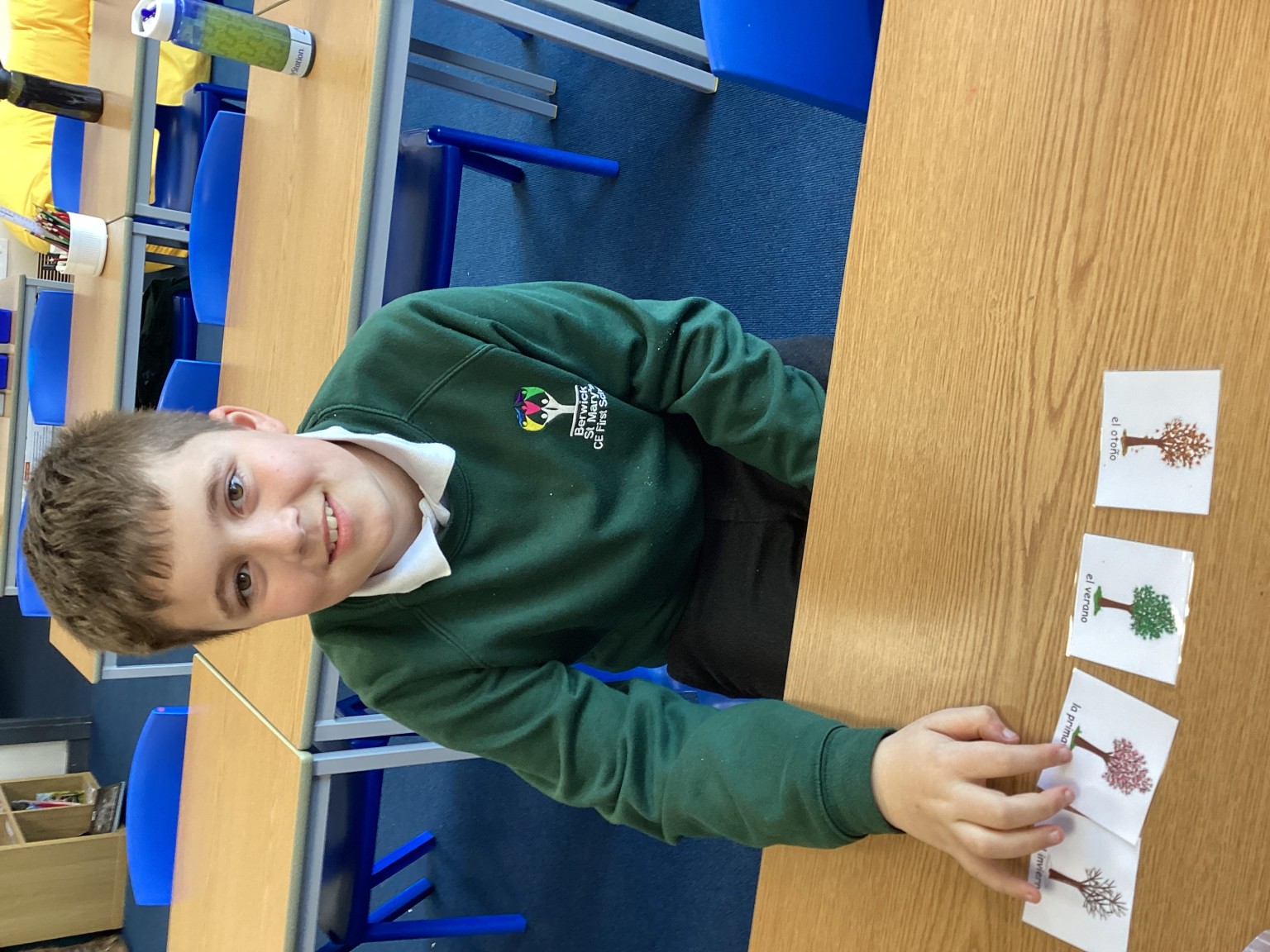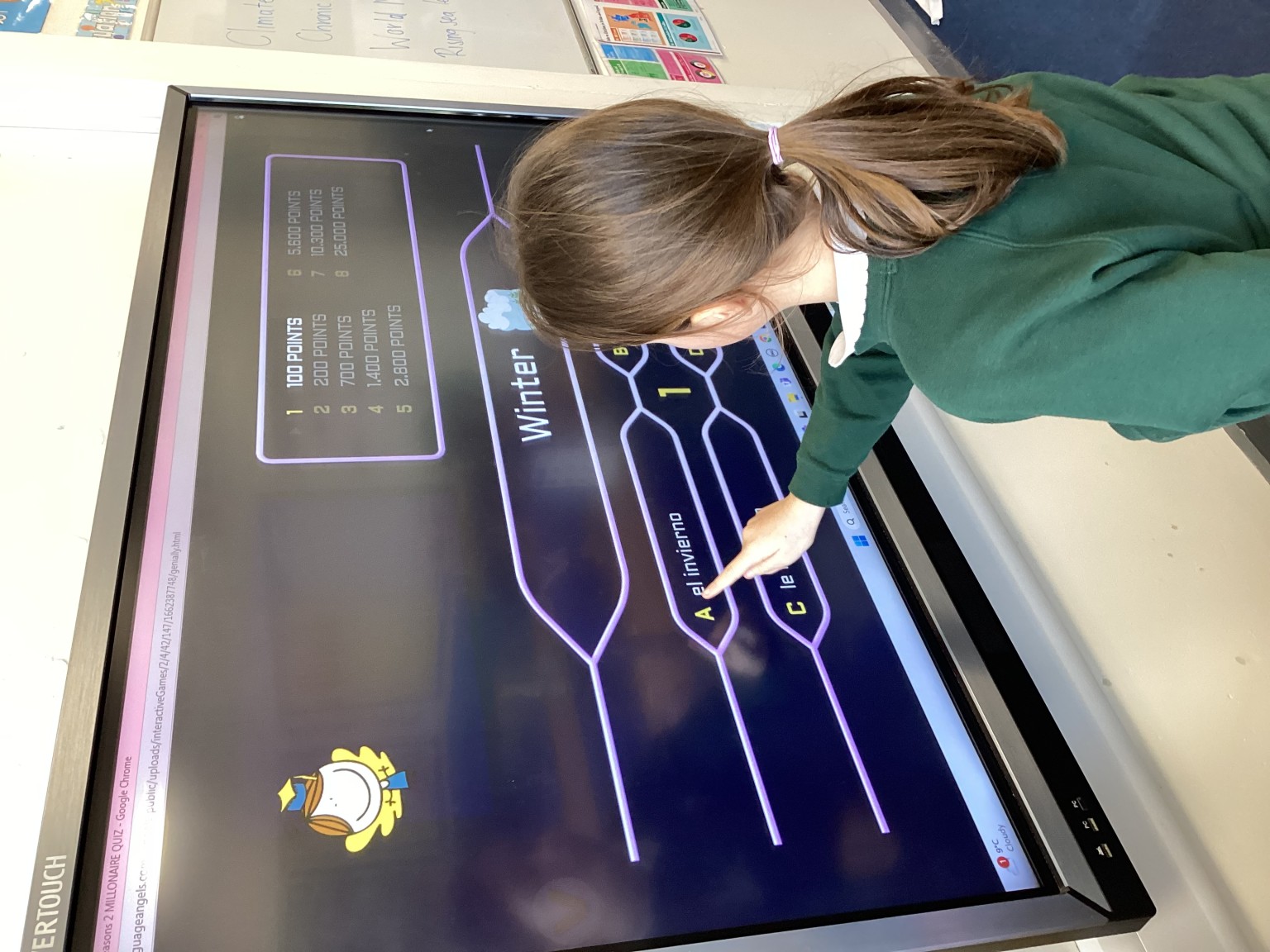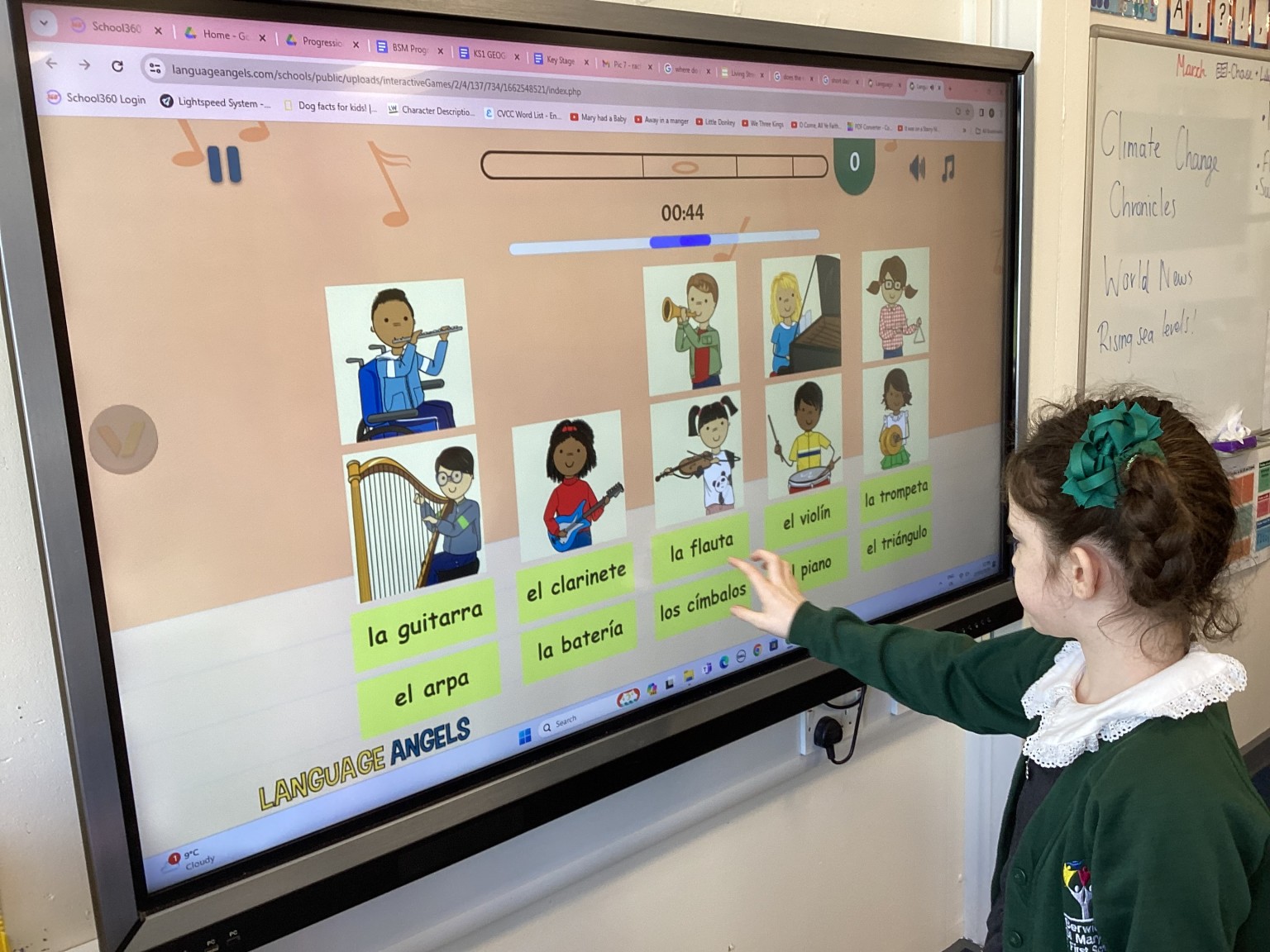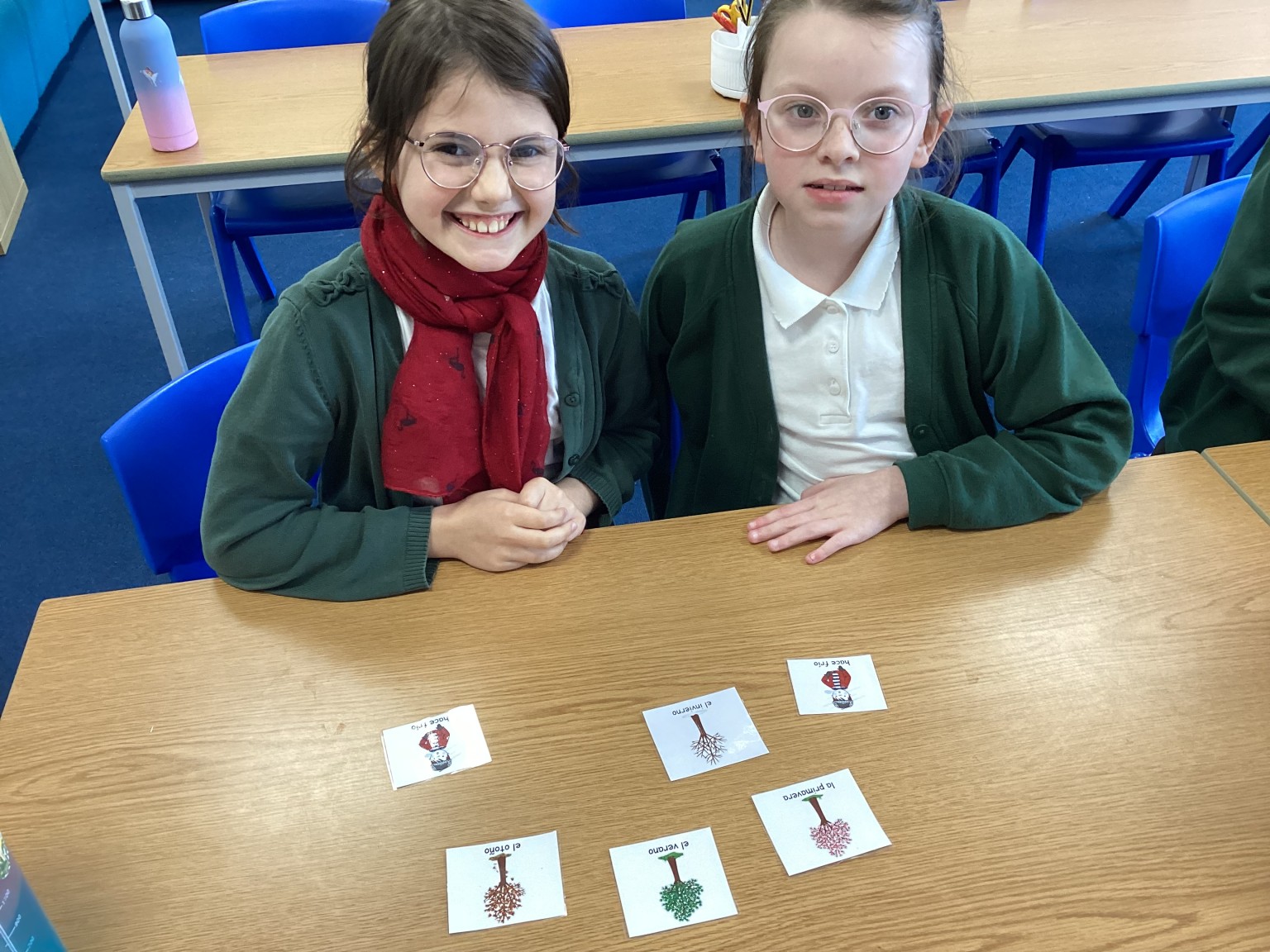‘Therefore let him who speaks in another language pray that he may interpret.’
Corinthians 14:13
Our Language lead is Miss Flint.
The purpose of learning foreign languages is to provide an opening to other cultures and deepen pupils’ understanding of the world. The curriculum aims to ensure that pupils understand and respond to spoken and written language from a variety of authentic sources. A high-quality language education should foster children's curiosity and deepen their understanding of the world.
We teach Spanish across Lower Key Stage 2. The school uses the "Language Angels" scheme of work to support the teaching and learning of Spanish. This provides clear progression for the development of speaking and listening and vocabulary acquisition. There are resources to support the teaching and learning opportunities for pupils.
The ‘three pillars of language learning’ (phonics, grammar and vocabulary) are built into our lessons and units and we develop the learning and use of these core linguistic pillars across our three different teaching types. We do not see them as three separate pillars as they are all intrinsically linked. Phonics are the smallest sounds in a language, we put them together to make words (vocabulary) and we then use grammar to string the words together in a way that makes them make sense – this is what makes a language!
All Early Learning units move towards a short phrase by lesson 5 and Intermediate and Progressive units aim for short text with expanding vocabulary and grammar knowledge as pupils know and remember more. Oral role-play opportunities are always provided where appropriate and become progressively more challenging. We use a variety of the following techniques to encourage children to have an active engagement with Spanish:
- Games – in order to develop vocabulary through repetition, reading, writing, speaking and listening skills.
- Role-play – these should relate to the situations the children may find themselves in the future.
- Action songs and rhymes – to develop phonetic skills, memory skills and to further vocabulary.
- Reading and writing quality materials.
- We build children’s confidence through praise for any contribution they make in the foreign language, however tentative.
The teaching of Languages is detailed in our half termly curriculum maps.
Click here to view the full National Curriculum Programme of Study that we follow for Languages.
Each lesson has a range of activities and opportunities for the pupils to practise the foreign language in all four skills - speaking, listening, reading and writing. These are supported and developed using a variety of different interactive activities.
We believe that the learning of a foreign language provides a valuable educational, social and cultural experience for our pupils. Pupils show resilience in developing the ability to communicate, including key skills of speaking and listening and extends pupils’ knowledge of how language works. Learning another language gives children a new perspective on the world, taking responsibility for communicating with others in their own language and encouraging them to respect their own culture and that of others.




